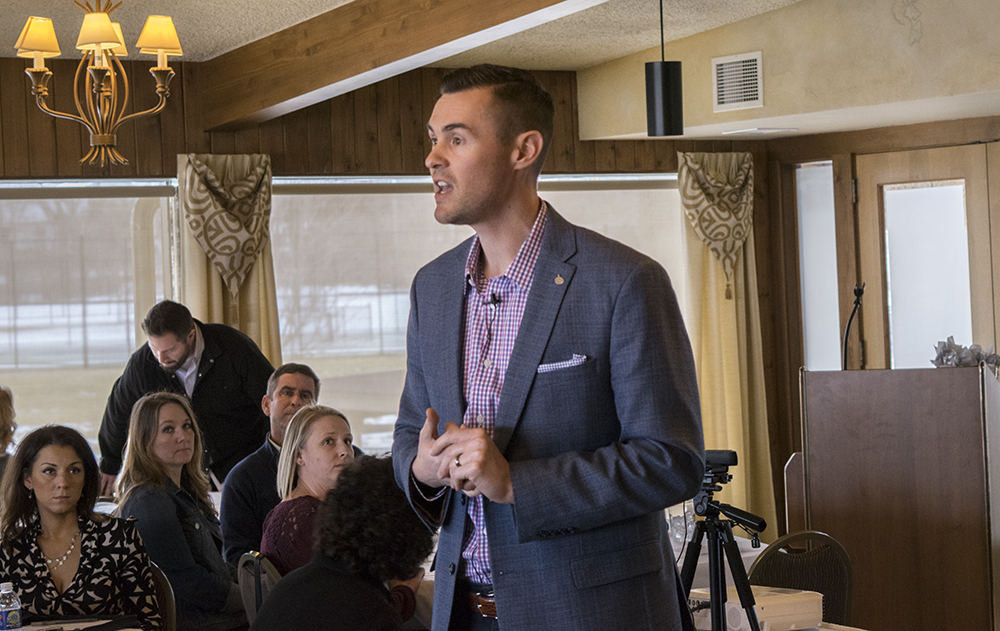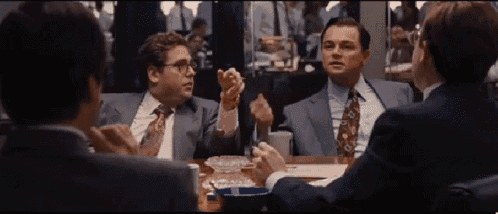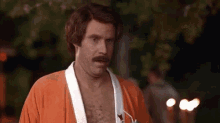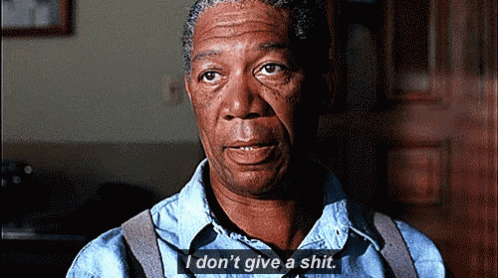
My first job out of college was for a slimy financial company.
Not the “Occupy Wall Street” kind of financial company you might assume when prefaced with the word slimy, but a true “Wolf of Wall Street” operation.
Except our office was on the second floor of a nondescript building in Bethesda, MD.

We bought lottery annuities.
By the pep talks we got you’d think we were curing cancer.
We were ruining lives.
That’s an overly harsh assessment. We tiptoed the line between possibly helpful and most likely destructive.
I was a Finder.
My job was to find lottery winners. We used large online public data warehouses to track down their contact information (and the information of everyone we could directly connect them with).
There is no data privacy. There hasn’t been for years.
Then our sales team would hunt these people down using every high-pressure sales tactic imaginable.
These were some of the darkest days of my life.
Pray you don’t win the lottery.
With just a first name and town it took me less than ten minutes to find someone (and their entire family). I was the company’s best Finder.
I started pretending I couldn’t find people.
I wanted to quit after a month.
We believe our actions are guided by rational decision making.
In psychology, this is known as normative models of decision making (how rational people should make decisions) and are described by researcher Robert L. Leahy as:
“Normative models propose that individuals consider all relevant alternatives, collect information regarding the costs and benefits of each alternative, weigh these alternatives irrespective of primacy and recency effects, and focus on enacting a decision regardless of past investments and committed actions. Thus, decision makers examine all the relevant information with the hope of maximizing their search and with the ability to weigh information dispassionately as to its relevance toward a goal. The normative model argues that decision makers should ignore the order of information presented and should give considerable emphasis to “base rate” information in the population at large, rather than choose the first alternative that comes along. The normative model stipulates that decision makers should not place greater emphasis on a personal anecdote rather than on abstract, but objective, data. Normative models are based on Subjective Expected Utility (SEU), such that individuals are assumed to calculate the probabilities of future utilities of various possible actions, compare these utility ratios, calculate the uncertainty involved, and consistently choose the alternative with the best ratio. Thus, the normative model, emphasizing subjective expected utility, describes how a coldly rational person ignores past history of behavior and only focuses on future utility.”
Leahy buries the lede:
“…a coldly rational person ignores past history of behavior and only focuses on future utility.”
Except this is not how humans make decisions. In the case of quitting something, our default is to make seemingly irrational decisions based on the sunk cost effect.
The sunk cost effect is an evolutionary tool developed as a mental work-around for the limitations of our imperfect memory.
Basically, we can only remember so much stuff and in order to survive the last 200,000 years, our brain hacked itself to make rapid decisions in order to stay alive.
One such hack is “satisficing,” (choosing available alternatives at an acceptable threshold), rather than optimal strategies.
Instead of overburdening our brain with mundane everyday decisions we instead rely on “Past investment predicts future benefits,” also known as the sunk cost effect.
While this mental hack may improve performance on routine tasks, it fails in situations where additional resources (time, effort, money, etc) do not result in future benefits.
Our inability to identify these situations is the reason the sunk cost fallacy exists.
Despite hating myself for the work I was doing and barely making enough money to pay my bills, (surprisingly, “Finder” was not a well compensated position), I didn’t quit my job at the Maryland version of “Wolf of Wall Street” for over a year.
Sunk cost effects are a major barrier to change. We don’t simply maintain a course despite it being proven a failure, we actively seek reasons to stay.
There are two major reasons for this: Ego and Memory Limitations.
When it comes to quitting a situation you know is a failure, ego is most certainly your enemy.
Ryan Holiday, author of the aptly named bestseller, Ego is the Enemy, wrote:
“Do you know how you can tell when someone is truly humble? I believe there’s one simple test: because they consistently observe and listen, the humble improve. They don’t assume, ‘I know the way.’”

In a study published in the Psychological Bulletin, researchers Hal R. Arkes and Peter Ayton, found that the younger a child was, the less impact sunk cost effects had on their decision making.
The study asked children of varying ages if they would purchase a new ticket to a merry-go-round having lost a previously purchased ticket.
The inference is younger children have yet to develop the ego nor do they adhere to the same social conformities.

This is supported by separate research from West Virginia University suggesting older adults are less likely than younger adults to fall prey to sunk cost effects.
Ego was certainly my enemy in choosing to stay at the lottery annuity company. My ego wouldn’t:
Falling prey to an ego induced sunk cost effect, I stayed longer than I should have, and was miserable.
As we discussed in Willpower is Overvalued, we have a limited amount of cognitive energy to draw from each day.

Using mental tools such as willpower or in the case of the sunk cost effect, memory, we drain cognitive performance.
This explains the Concorde Effect, named after the supersonic airplane. The plane’s dim financial prospects were known
long before the plane was completed, but the two governments financing the project (France and Britain) decided to continue anyway on the grounds that they had already invested a lot of money. In short, they had “too much invested to quit.”
According to a study published by Northwesten University, as we move farther away from our initial decision and our ability to recall why we made the decision in the first fades, the magnitude of the Concorde Effect increases significantly.
Over time, I forgot the reason I had originally taken the job at the “Wolf of Bethesda” finance company was simply because I needed money.
Had I taken the time to remember how shallow my initial decision was, I would have never endured over a year’s worth of negativity.
Rather than claiming past costs as reason enough to abandon a losing strategy, we escalate our justification and investment in the course of action.
This is a big problem.
Sunk cost leads to the opportunity cost of future projects not performed at the expense of continuing a failed project.
There are three ways to combat the sunk cost effect:
The sunk cost effect is real, but it doesn’t have to govern your decisions.
Thank you,
Ryan Hanley
Click here to get new posts delivered by email (and other exclusive bonuses).



© Copyright 2025 Finding Peak LCC
All rights reserved.